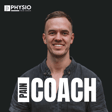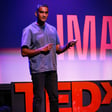
Anjelo Ratnachandra: Hit by a molotov cocktail due to mistaken identity led to a journey with chronic pain
In this episode, we’re joined by Anjelo Ratnachandra, who turned personal tragedy into a mission to help others overcome chronic pain.
Anjelo’s journey began when he was innocently hit by a Molotov cocktail due to mistaken identity in gang wars, leading to severe burns and chronic pain. This traumatic experience sparked his deep determination to reclaim his life and to lead others beyond pain.
Anjelo shares his personal story of living with chronic pain, the emotional and physical challenges of dealing with an invisible illness, and what he has learned from his own struggle, as well as from working with many others dealing with chronic pain.
He is the founder of Beyond Pain Clinic, Physiotherapist of the Year (2018) at the Australian Allied Health Awards, and author of the self-guiding book Beyond Pain.
If you’ve ever struggled with chronic pain or felt like it controls your life, this episode is for you.
DISCLAIMER - This podcast is for educational purposes only. The views expressed in this podcast do not constitute medical advice and are general in nature. You should obtain specific advice from a qualified health professional before acting on any of the information within this podcast.
RESOURCES:
Beyond Pain: Conquer Your Pain, Reclaim Your Life









